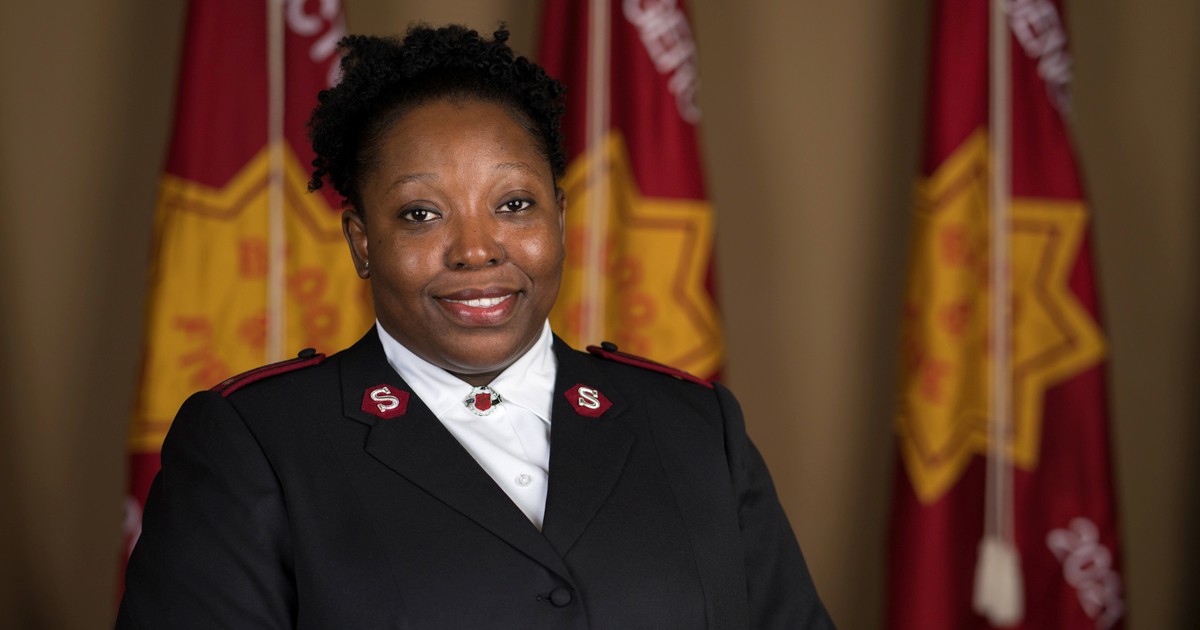I’ve noticed an alarming trend in The Salvation Army, and the church in general. When young people in our corps reach a certain age—usually around 16 to 18—more and more are simply vanishing from our doors. They might reappear from time to time, but they never stay. Why are we losing this generation? A generation that will one day run our Army?
I’ve been doing some research on millennials—I also have two living in my home—and I’m sharing some of my findings with the hope that we can prevent the exodus of an entire generation. I acknowledge that not every millennial falls into these categories, but the majority who leave our corps and ministries cite the following reasons (whether true or not).
1. God can be found elsewhere
In a 2015 Barna study, nearly 39 percent of millennials believed that God could be found elsewhere, and attending church isn’t necessary to find God. This is troubling. Our corps should be places where God is real and present. Is he in your corps? How can we impress upon our young people that God might not be tied specifically to our corps halls, but to sacrificial living? Perhaps it has to begin by living out that belief. I applaud those in my life who were an example for me. Many wonderful officers and soldiers displayed holy living through their kindness, grace and love. Perhaps we need less rhetoric and cliché mottos, and more evidence of belief in those mottos spilling itself out into our communities. No, God can certainly be found elsewhere, but is he evident in us?
2. Millennials can spot fakes
We’ve all seen the televangelists with the gleaming teeth and the empty words, preaching prosperity without ever mentioning biblical principles, godly character or sin. Millennials have a deep longing for the return of the sacred to our churches and corps. The message of wearing a uniform as our only testimony of an inward change is not enough—we must live out this change. This is true, of course, for every generation, and the necessity of holiness in our movement is vital for all. When we talk a big game but nothing ever happens, millennials will spot the phoniness and run for the exits. We can dress the part, we can say all the “hallelujahs” until we are blue in the face, but if none of it translates into holy living, you can bet that sort of fakery will be seen. Once seen, it’s hard to recover from.
What millennials want are people who are real and genuine. They want to see real people struggling with real stuff and not hiding or pretending everything is fine. This requires vulnerability for both sides: to admit that though we live out holiness, we still encounter hardship, doubt and fear. Soldiers, be real. Don’t put on masks; don’t lie when things aren’t going well. Live holiness out in the midst of life’s ugliness.
3. Hypocrites in uniforms
Along with spotting fakes, millennials are repulsed by hypocrites who preach one thing, but live another. The “do as I say, not as I do” motto needs to die not only in the church, but in our Army as well. If it exists, address it and stamp it out. Don’t let it fester and lead to the spiritual death of your corps. Years ago, I heard of corps with band members who put on their uniforms to perform, and then rushed out the back door as soon as their part in the service was over. What kind of witness is that to our young people?
Millennials have also seen moral failures in society, and perhaps even in The Salvation Army. Divorce rates are high; half of all millennials come from one-parent homes, or split their time between two homes. Some have witnessed the effects of moral failure first-hand in family members and deeply desire to change that narrative in their own lives.
Other instances could involve officers or soldiers forming exclusive groups in the corps, either intentionally or unintentionally, and failing to include others seeking fellowship. Perhaps some have experienced mean people in the pews of our corps and wondered to themselves, “Is this what The Salvation Army is all about?”
I guarantee that this point rubs many of us the wrong way. Good—it ought to. We should never be perceived as hypocrites in uniform. If we aren’t inclusive of people from all walks of life, then we have no place being an army of salvation. All are welcome to experience the love of God in our services.
4. Lack of ownership
Millennials want to belong to something great. They believe in charity, giving and helping people in need. They have a passion to serve causes that matter and make a difference. When we emphasize world services, they want to contribute and help out in tangible ways. When we don’t allow them to participate because they are young and “don’t know anything,” we are closing the door to their future in the Army. Millennials want to be invested in the Army—but how can we empower them and raise them up to lead? There needs to come a point, and perhaps it’s already happening in some places, when we not only invest in the younger generation, but we allow them to take leadership positions. We need to relinquish our grip on some positions of authority and allow them to help. When we help our youth be genuinely invested, they will have a sense of belonging and a deeper desire to serve and be used—because they will be making difference.
These are just four reasons The Salvation Army is losing millennials. I acknowledge that churches in other denominations are facing the same crisis. But, just for a moment, let me ask you—What is the Army doing to ensure the next generation doesn’t flee its ranks? What can be done? More importantly, what are YOU doing? Our Army is only as strong as its members who are actively living out our mission.
We don’t need to spruce up our worship bands, or make sure we have attractive-looking corps or programs. What millennials (and non-millennials) are looking for is a warm, inviting place to belong. Is YOUR corps that place?
Captain Scott Strissel is the corps officer at Evansville Corps and Community Center in Indiana. He is an active blogger and contributor for the purpose of encouraging and challenging the Salvation Army world. Read his blog at pastorsponderings.org.
Feature photo: © ninjaMonkeyStudio/iStock.com










If you are out there and still following this comment thread I would be happy to continue this conversation with you as you suggest in your post.
The Youth Department is very interested in hearing the experience of young people who have grown up with the Army, but, for various reasons, that the Army is no longer their church/spiritual home. It is important that we learn from each other and journey together.
If you would like to connect further please contact me directly at Terence_Hale@can.salvationarmy.org.
Blessings,
Terence Hale TYS